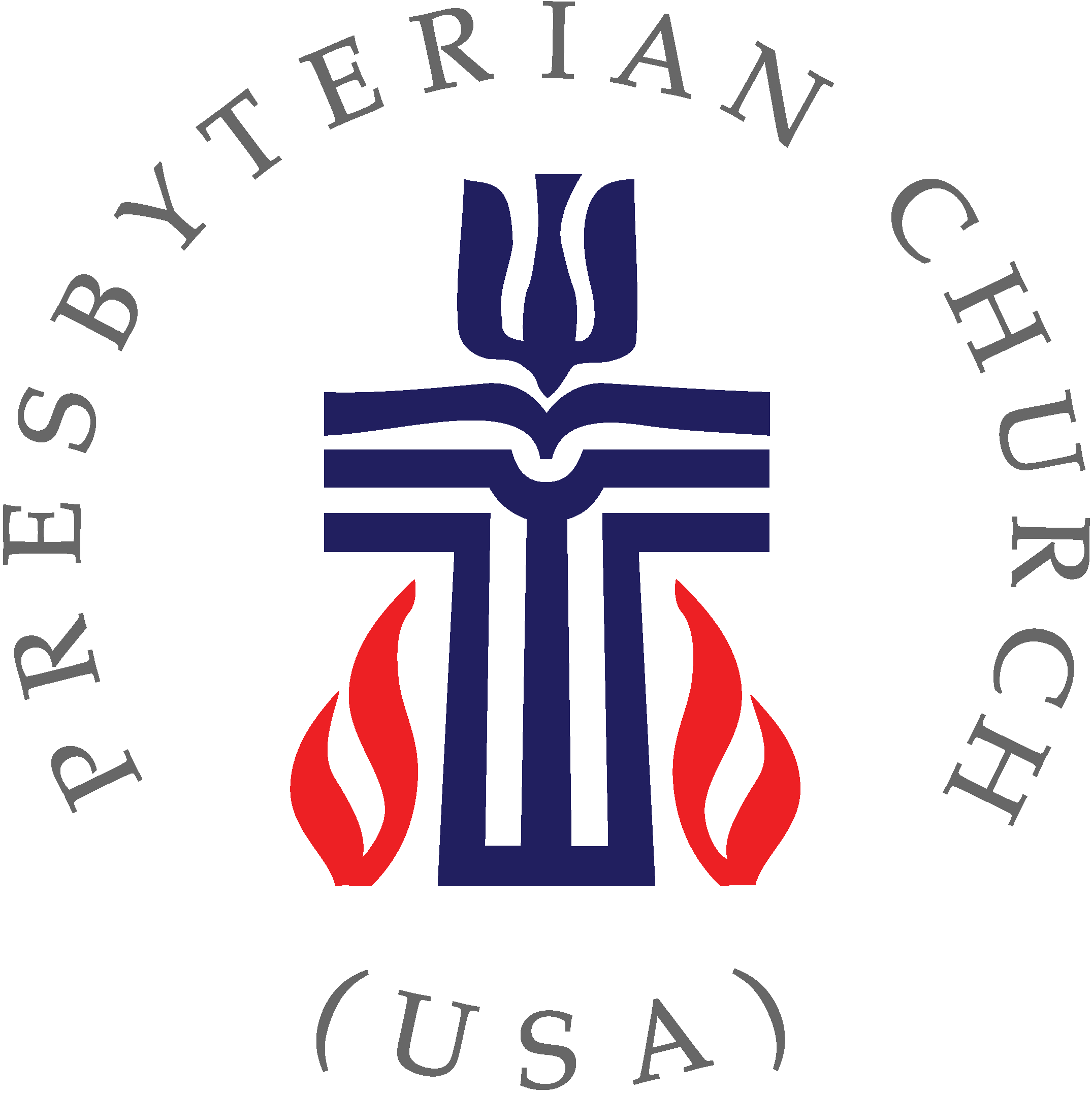Presbyterian 101
Presbyterians are part of the Reformed Tradition, meaning that our theological ancestors were part of the Swiss and then Scottish Reformations in the mid-1500s. Some of the names you might hear when we talk about that history include John Calvin and John Knox. Most of the time, though, we talk about grace, about God's providing power, and about the love of Christ. We also live into our long and rich heritage as people who DO. Throughout history Presbyterians have built schools and hospitals, worked for justice and peace, and been on the forefront of both meeting immediate needs and building a society where fewer people are in need. You may have seen some of that work through, for example, Presbyterian Disaster Assistance, the Presbyterian Hunger Program, or other similar mission work. Following Jesus, Presbyterians are engaged in the world, seeking thoughtful solutions to the challenges of our time.
Presbyterians are a "connectional church"--meaning that each congregation is a part of a larger regional gathering called a Presbytery, and each Presbytery is part of a larger regional gathering called a Synod, and the nationwide body of Presbyterians is called the General Assembly. We are part of the Presbytery of Chicago and the Synod of Lincoln Trails. Learn more about the PC(USA) here at Presbyterians 101.
Through the grace of our Lord Jesus Christ, the love of God, and the communion of the Holy Spirit, we trust in the one triune God, the Holy One of Israel, whom alone we worship and serve.
Presbyterians affirm that God comes to us with grace and love in the person of Jesus Christ, who lived, died, and rose for us so that we might have eternal and abundant life in him. As Christ’s disciples, called to ministry in his name, we seek to continue his mission of teaching the truth, feeding the hungry, healing the broken, and welcoming strangers. God sends the Holy Spirit to dwell within us, giving us the energy, intelligence, imagination, and love to be Christ’s faithful disciples in the world.
Worship:
Most worship services are organized in a five-fold pattern of Gathering, Preparing, Encountering, Responding, and Sending. You can expect hymns, responsive readings, special music offered by a soloist or an instrumentalist, prayer, reading of scripture, a sermon, sharing of our celebrations and concerns, and an opportunity to make a monetary offering. Some weeks, the service includes the sacraments--baptism (as needed) and/or communion (at least monthly).
Sacraments:
Communion, sometimes called the Eucharist (Greek for "Great Thanksgiving") or The Lord's Supper, is a time when we share bread and wine (we use unfermented grape juice, and we also offer gluten-free wafers), remembering Jesus' offering himself to us in tangible ways. In this ritual, called a sacrament because it connects us to the Holy, we believe we are joined with the "communion of saints"- all God's people past and present -and nurtured for life in the Kingdom of Heaven here on earth. We believe that as the bread is broken, we are made whole, and as we partake of the feast, God re-makes us into the body of Christ, "loving, serving, and caring for the world." Those who are worshipping at home can prepare their own juice/wine and bread for the sacrament.
Baptism is a sign of God's love for us and of our entrance into the community of faith. The symbol of water reminds us of Jesus' baptism, of the Spirit at creation, and of God's promise to lead us to streams of living water. The whole congregation makes promises to nurture those baptized in the life of faith - this is not a private affair, but a community-wide celebration. We baptize infants, who cannot yet ask for or respond to grace, signifying God's grace that washes over all of us before we understand. Older children or adults who have not been baptized before may also be baptized at the time they are confirmed or choose to join the church, as a sign of God's grace at work in their lives. The sacrament of baptism is administered only once in one's lifetime, and we recognize all other baptisms in the name of the Father, Son, and Holy Spirit. Throughout the year we have opportunities to remember our baptisms and to renew the vows made.

